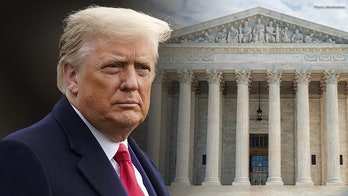WikiLeaks founder Julian Assange has pleaded guilty and received a time-served sentence as part of a plea deal reached with the U.S. Justice Department. The deal allows Assange to avoid prison time in the US and return home to Australia.
WikiLeaks founder Julian Assange has pleaded guilty and received a time-served sentence as part of a plea deal reached with the U.S. Justice Department. The deal allows Assange to avoid prison time in the US and return home to Australia.
Assange entered the guilty plea Wednesday morning in federal court in Saipan, the capital of the Northern Mariana Islands, a U.S. commonwealth in the Pacific. The sentence was imposed by U.S. District Judge Ramona Manglona.

Julian Assange Pleads Guilty, Ends Imprisonment in Plea Deal with U.S.
In her remarks, Manglona noted the passage of time and the harsh conditions of Assange's imprisonment in the UK. She emphasized that the government had indicated the absence of any personal victims, a factor that weighed in favor of the plea agreement.
Assange pleaded guilty to a single felony count, avoiding prison time in the U.S. and securing his release. However, as a condition of his plea, he must destroy classified information provided to WikiLeaks.

Julian Assange Pleads Guilty, Ends Imprisonment in Plea Deal with U.S.
The plea deal stemmed from charges against Assange for publishing classified U.S. military documents leaked to him by a source. Assange, 52, was facing 17 counts under the Espionage Act for allegedly receiving, possessing, and communicating classified information to the public, as well as one charge alleging conspiracy to commit computer intrusion. By reaching a plea deal, he avoided the potential of spending up to 175 years in an American maximum security prison.
The charges were brought by the Trump administration's DOJ over WikiLeaks' 2010 publication of cables leaked by U.S. Army intelligence analyst Chelsea Manning. The Biden administration had continued to pursue prosecution until the plea deal.

Julian Assange Pleads Guilty, Ends Imprisonment in Plea Deal with U.S.
Assange had been held at London's high-security Belmarsh Prison since being removed from the Ecuadorian Embassy on April 11, 2019, for breaching bail conditions. He had sought asylum at the embassy since 2012 to avoid being sent to Sweden over allegations he raped two women, which were eventually dropped.
The plea deal required Assange to admit guilt to a single felony count but allowed him to avoid prison time in the U.S. and return home to his family in Australia. Assange's release was welcomed by his family and supporters, but concerns about press freedom were raised given that he was forced to admit guilt for journalistic activities.

Julian Assange Pleads Guilty, Ends Imprisonment in Plea Deal with U.S.
Assange said in court that he believed the Espionage Act contradicted the First Amendment but accepted the consequences of soliciting classified information from sources. He was the first journalist to be charged under the Espionage Act.
The Justice Department avoided an appeal hearing in which Assange would have challenged his U.S. extradition on First Amendment grounds. Last month, Assange had been granted the right to appeal after his lawyers argued that the U.S. provided "blatantly inadequate" assurances that he would have the same free speech protections as an American citizen in a U.S. courtroom.
Assange's wife, Stella, expressed relief at the outcome and said details of the agreement would be made public after the judge signed off.
The U.S. government's decision to drop its pursuit of extradition stemmed from the Obama administration's earlier decision not to indict Assange over WikiLeaks' 2010 publication of classified cables. The Obama administration reasoned that such an indictment would have required also indicting journalists from major news outlets who published the same materials.
President Obama also commuted Manning's 35-year sentence for violations of the Espionage Act and other offenses to seven years in January 2017, and Manning was released later that year.










